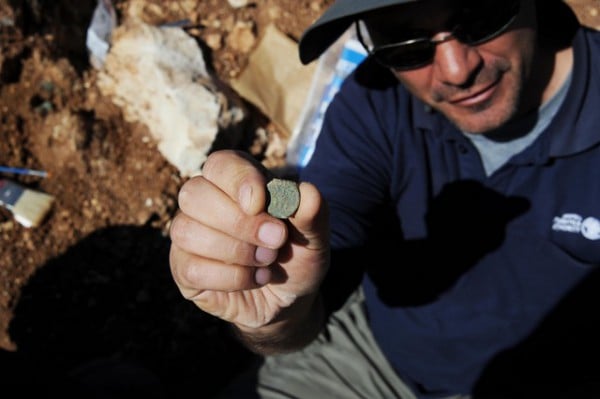
A previously unknown settlement from the late Second Temple Period (c. 200 BCE to 70 CE) was discovered outside Jerusalem by an inspector from the Israel Antiquities Authority during construction work on a new highway, Art Daily has reported.
Evidence suggests that the residents of the freshly excavated village were participants in both major uprisings against the Romans, the Great Revolt and the Bar Kokhba Revolt. As a result of their involvement, the village was destroyed twice, and was not resettled.
The archaeological excavation yielded hoard of rare coins kept inside a ceramic box that was discovered in one of the houses. The find included 114 bronze coins dating to the fourth year of the Great Revolt against the Romans. Excavation directors Pablo Betzer and Eyal Marco said “The hoard, which appears to have been buried several months prior to the fall of Jerusalem, provides us with a glimpse into lives of Jews living on the outskirts of Jerusalem at the end of the rebellion. Evidently someone here feared the end was approaching and hid his property, perhaps in the hope of collecting it later when the calm was restored to the region.”
The Israel Antiques Authority is planning to preserve the village remains as part of a landscape development next to the highway.